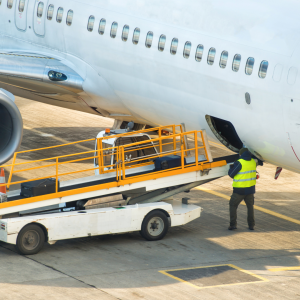In an increasingly interconnected world, choosing the right freight forwarder is crucial for ensuring efficient supply chain operations and maintaining a competitive edge. Whether your business requires international freight services, freight transportation solutions, or specialized logistics services, selecting a freight forwarder capable of meeting your unique needs can streamline operations and reduce costs. As digital freight forwarding continues to reshape the logistics landscape in 2024, businesses must evaluate traditional and modern solutions to identify the best partner. This comprehensive guide outlines the factors to consider when choosing a freight forwarder and how they impact your freight shipping success
Understanding the Role of a Freight Forwarder What is a Freight Forwarder?
A freight forwarder acts as an intermediary between businesses and transportation providers, facilitating the movement of goods across domestic and international borders. Their responsibilities typically include arranging shipping, negotiating freight rates, handling customs documentation, and providing tracking services. Whether you’re dealing with ocean freight forwarders for large shipments or air freight forwarders for time-sensitive cargo, these professionals play an integral role in logistics services.
Key Services Offered by Freight Forwarders
Freight forwarders provide a range of services designed to simplify logistics management, such as:
- Freight Transportation Coordination: Managing the movement of goods across multiple modes of transportation, including road, air, and sea.
- Customs Clearance: Ensuring compliance with international trade regulations and managing import/export documentation.
- Storage and Warehousing: Offering temporary storage solutions for goods in transit.
- Digital Freight Forwarding: Providing real-time tracking, automated rate comparisons, and online booking for added convenience and efficiency.
Factors to Consider When Choosing a Freight Forwarder
Expertise in Freight Shipping
The best freight forwarder should deeply understand freight shipping across various industries. Look for providers with proven experience handling the type of goods your business ships. For example, an air freight forwarder with expertise in managing perishable goods can ensure that time-sensitive shipments reach their destination on schedule, while an ocean freight forwarder specializing in bulk cargo can optimize cost efficiency.
Range of Logistics Services
A comprehensive suite of logistics services is essential for managing an efficient supply chain. Evaluate whether the freight forwarder offers end-to-end solutions, such as warehousing, cargo insurance, and digital freight forwarding. These additional services can streamline your operations and reduce the complexity of managing multiple vendors.
Access to the Best Freight Rates
Freight costs can significantly impact your bottom line, making selecting a forwarder with competitive rates crucial. Digital platforms now allow freight forwarders to provide real-time access to the best freight rates, helping businesses compare costs and make informed decisions. Additionally, a forwarder with established relationships with carriers can often negotiate better deals on your behalf.
Evaluating Freight Forwarders in 2024
Embracing Digital Freight Forwarding
The logistics industry has seen a significant shift toward digital freight forwarding, where technology plays a central role in managing freight transportation. When evaluating a forwarder, consider whether they provide online booking, tracking, and real-time rate comparisons. These features enhance visibility, improve decision-making, and ensure timely deliveries, making them essential for modern logistics operations.
Global Network and Coverage
An international freight forwarder with a robust global network can simplify cross-border shipments and ensure smooth customs clearance. Look for forwarders with established operations in key markets and access to multiple carriers to provide flexibility and reliability. This is especially critical for international freight service businesses or across multiple regions.
Customer Support and Responsiveness
The ability to address issues promptly and provide regular updates is a hallmark of a reliable freight forwarder. Evaluate customer support channels and responsiveness, particularly during emergencies or unforeseen delays. Forwarders who offer dedicated account managers or 24/7 support can add significant value to your logistics operations.
Specialized Freight Forwarders for Diverse Needs
Ocean Freight Forwarders
Ocean freight forwarders are essential for businesses with bulk cargo or large shipments. They specialize in managing containerized shipments and offer cost-effective solutions for transporting goods over long distances. Look for forwarders with experience handling both FCL (Full Container Load) and LCL (Less than Container Load) shipments, as these options can cater to varying shipping needs.
Air Freight Forwarders
Time-sensitive goods, such as medical supplies or high-value electronics, often require the expertise of air freight forwarders. These professionals ensure fast and reliable transportation while providing customs clearance and insurance services. Consider forwarders who provide real-time air freight rates and tracking to enhance efficiency and transparency.
Benefits of Choosing the Right Freight Forwarder
Streamlined Supply Chain Operations
A well-chosen freight forwarder simplifies logistics management by offering integrated solutions, from transportation to warehousing. This reduces the burden on internal teams and allows businesses to focus on their core operations.
Cost Savings and Efficiency
Freight forwarders leverage their expertise and networks to secure the best freight rates, minimizing costs associated with shipping. Additionally, their ability to optimize routes and consolidate shipments reduces transit times and enhances overall efficiency.
Enhanced Risk Management
From managing customs compliance to offering cargo insurance, freight forwarders help mitigate risks associated with international freight services. Their expertise ensures that shipments are handled securely and meet regulatory requirements.
Challenges to Watch For Lack of Transparency
Not all freight forwarders provide transparent pricing or tracking systems, leading to hidden costs and reduced visibility. Ensure that the forwarder you choose offers clear communication and access to real-time shipment updates.
Limited Flexibility
A freight forwarder with limited carrier partnerships or rigid service offerings may struggle to meet your evolving logistics needs. Opt for providers with diverse capabilities and the ability to adapt to changing market conditions.
Steps to Select the Best Freight Forwarder
- Define Your Logistics Needs: Identify your shipping requirements, including the types of goods, destinations, and preferred transportation modes.
- Research Potential Forwarders: Evaluate forwarders based on their expertise, range of services, and digital capabilities.
- Request References and Case Studies: Ask for examples of similar businesses they’ve served and the outcomes achieved.
- Compare Rates and Contracts: Use digital platforms to access and compare the best freight rates, ensuring transparency and value for money.
- Test Customer Support: Engage with their support teams to gauge responsiveness and problem-solving capabilities.
Choosing the best freight forwarder for your business in 2024 requires carefully assessing their expertise, logistics services, and digital capabilities. With the rise of digital freight forwarding and the increasing importance of global trade, businesses must partner with forwarders who offer competitive rates, streamlined operations, and reliable support. By considering experience, transparency, and adaptability, you can ensure a seamless and efficient supply chain that supports your business goals.






Leave A Comment
You must be logged in to post a comment.